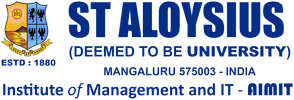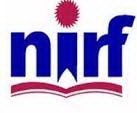The conference was inaugurated by Dr Jayaprakash Alva, Dean of Father Muller Medical College, Mangalore.
In his speech, Dr Alva stressed the need and importance of Information Technology domain working together with the health care sector, which could benefit society at large. He also emphasized that this conference should not end with discussions and deliberations, but should be taken forward so that innovative and creative products could be delivered that could help the common man.
The president of the Conference Dr (Fr) Praveen Martis SJ, the principal of St Aloysius College (Deemed to be University), Mangalore, highlighted the various collaborative engagements and research initiatives taken by the College. Dr (Fr) Melwyn Pinto SJ, Director of AIMIT campus of St Aloysius College (Deemed to be University), Mangalore, highlighted the role of research in the academic life and appreciated the participants of this conference for coming up with various research papers.
The e-conference proceedings with an ISBN no 978-93-91077-79-2, consisting of all the paper abstracts to be presented in the conference was released in the function. Earlier, Hon’ble Vice Chancellor of Mangalore University, Prof. Dr. P. Subrahmanya Yadapadithaya’s video message was played. He appreciated the College for organizing this conference, and also pointed out the impact of technology in handling the pandemic situation.
Followed by the Inaugural, the tutorial sessions were conducted by Association of Public Health Technologists, where digital health and the various other initiatives were elaborated by Dr Shazia Anjum, State WHO HQ Consultant, NTEP – Karnataka, Dr Balu P S, professor and head, department of community medicine, JJMMC Davangere and Mr Surabhi Quraishi from ZMQ development. The entire Session was coordinated by Dr Sudhir Prabhu, from the department of community medicine, Father Muller Medical college.
In the afternoon, paper presentations were held in six tracks. All the authors were given eight minutes for presentation and 2 minutes for discussion.
On Day 2 a tutorial session on ‘Human Computer Interaction’ by Dr Sreekanth, associate professor, department of computer science, Kannur university, was held. In this session, the speaker challenged the participants to take up innovative projects that could simulate the sensory functions such as taste and smell.
Dr Vijayabhaskar Reddy, associate professor, university of Utah, School of Medicine introduced the topic called ‘clinical health informatics’. Ms Sahana MS, the chief operating officer of ‘AI-Bharata’, an AI –based startup, spoke on the use of Deep Learning for identifying diseases. She spoke on the AI platform that is used to detect covid-19, a medical AI library called MY-AIRA and the AI tool that is developed by this Bangalore based startup to detect few diseases.
Dr Shubha D.B, associate professor, department of community medicine, JJMMC, Davangare spoke on technology to detect breast cancer. The last tutorial session of the conference was by Dr Subhabrata Pal, head of medical technology, a startup company that has developed an AI tool to screen cervical cancer using computer vision called PredAID-VIA.
In the afternoon paper presentations were held in four tracks. As many as 118 papers were presented in all the tracks.
The valedictory programme, in the evening of Day 2 where Dr Chandrasekhar Shetty, research coordinator of St Aloysius College (Deemed to be University) was the chief guest. The detailed report was read by the SACAIM 2021 convener Dr S. Ruban. Students were presented with certificates.


 Ranked 58th
Ranked 58th



























